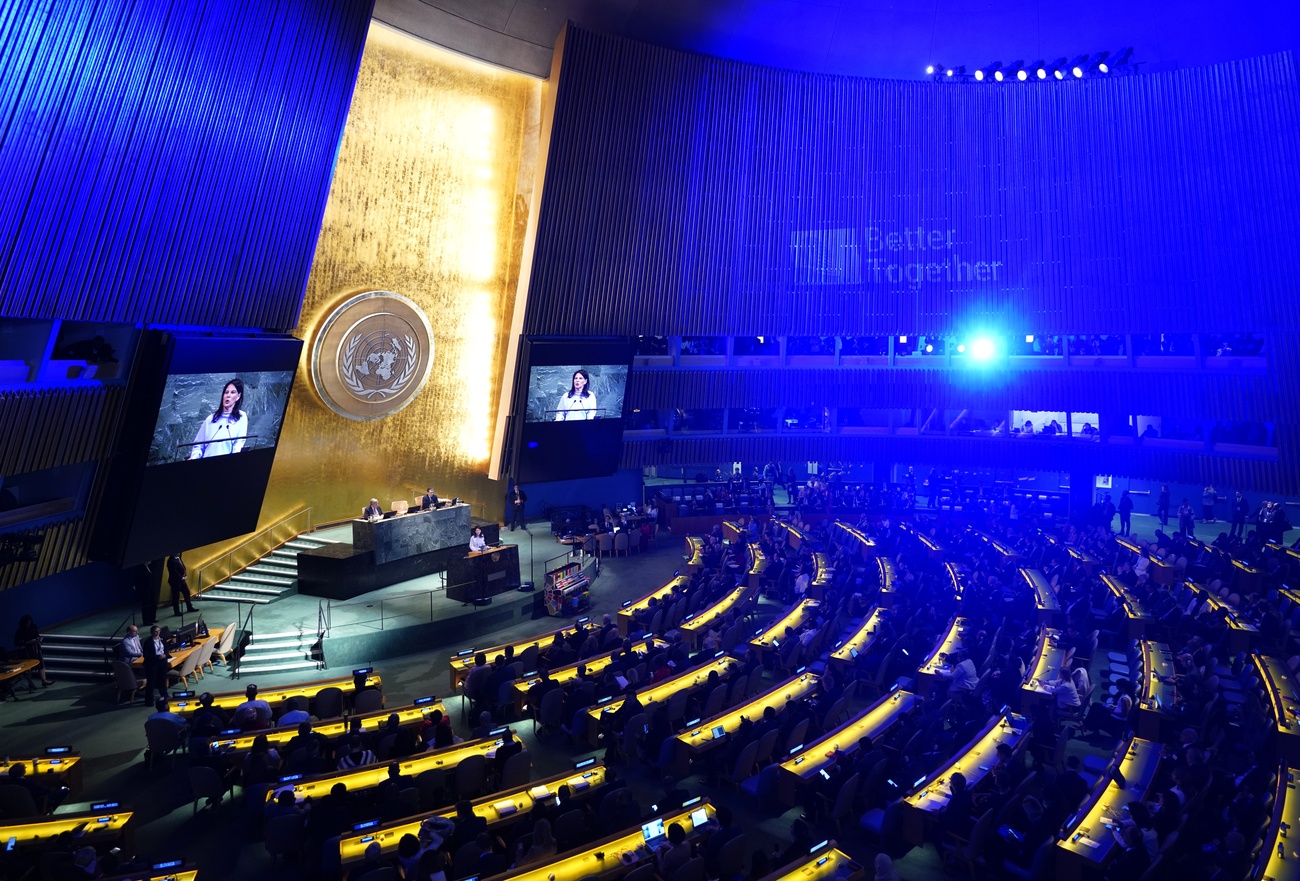
Federal Court rules against Jewish refugee Spring
The Swiss federal court has rejected a claim for compensation by a Jewish refugee refused entry into the country during the Second World War. But it awarded Joseph Spring SFr 100,000 to cover legal costs.
The Swiss federal court has rejected a claim for compensation lodged against the government by a Jewish refugee who was refused entry into the country during the Second World War, but agreed to give him SFr 100,000 to cover legal costs.
The court rejected the case brought by Joseph Spring, a Polish Jew now living in Australia, on the grounds that the Swiss authorities did not violate refugee law at the time.
The government welcomed the fact that the court had upheld its decision. But it said it was aware of the personal tragedy involved in the case.
“The government expresses its most sincere compassion to Mr Spring and his family.” spokesman Daniel Eckmann said after the verdict. “We have every respect for the reasons which motivated Mr Spring’s appeal.
“I’m disappointed, as you can imagine,” Spring told Swiss Radio International. “They don’t want to be in a situation where anyone else can get the same, because of the precedent.”
He accused the judges of making political statements. “They tried to justify Switzerland’s wartime behaviour, rather than simply leaving it to the historians, who did a wonderful job in the Bergier Report,” he said.
Last month’s second interim report by the commission of eminent historians, led by Jean-François Bergier, found that Switzerland’s refugee policy during the Nazi era broke no international laws, but was driven by anti-semitism. It said the Swiss authorities knew that those it turned back would end up in death camps.
The Swiss practice during the war was to hand immigrants over if they were caught trying to enter the country illegally more than once. Spring and two companions were handed over to a German patrol after their second unsuccessful attempt to flee German-occupied France in 1943.
Spring was sent to Auschwitz, but survived. His two companions died. Spring took his case for compensation to the federal court after the government turned down his demand for SFr100,000 in 1998.
But despite rejecting the compensation claim, the five judges at the federal court voted by three to two in favour of awarding Spring SFr100,000 in legal costs – something they described as a creative solution.
Eckmann said the government considered this an equitable solution, given the moral and political aspects of the case. But Spring’s lawyer Paul Rechsteiner described it as a “non-decision”, which showed that the judges had a “bad conscience”.
“Fifty-five years after the capitualtion of the Nazis, the highest court in Switzerland was not able to say that this was an injustice,” Rechsteiner said. “Only by recognising it as an injustice, can it be prevented from happening again.”
Spring said he would not take the matter any further. “It was a sort of one-shot case. It was an opportunity for the Swiss to set things right, and it wasn’t grasped, unfortunately.

In compliance with the JTI standards
More: SWI swissinfo.ch certified by the Journalism Trust Initiative



























You can find an overview of ongoing debates with our journalists here . Please join us!
If you want to start a conversation about a topic raised in this article or want to report factual errors, email us at english@swissinfo.ch.